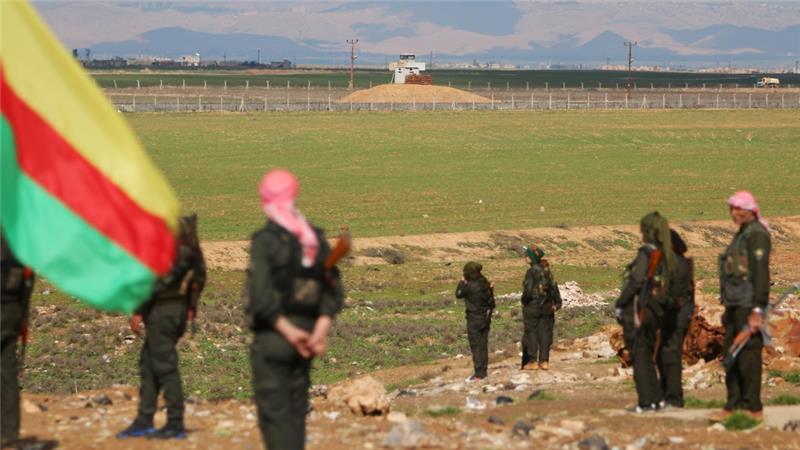Beirut – The Kurdish scene is appearing ever more divided today since the eruption of the Syrian crisis in 2011, leaving major changes on the ground in northern Syria and causing the displacement of around 40 million Kurds.
Spread over Turkey, Iraq, Syria, Iran and Armenia, Kurds are considered the fourth largest ethnic group in the Middle East and are now, more than ever, close to establishing a state that they have been longing for since the beginning of the 20th century. To that end, they are seeking to become a part of the several regional agendas that are active in the region.
The Kurds are however divided between two main currents. The first adheres to the Kurdistan Democratic Party of Masoud Barzani and the second adheres to the Kurdistan Workers’ Party (PKK) of Abdullah Ocalan. These divisions have been exploited by their foes in order to thwart the formation of a Kurdish state.
Other major parties include the Democratic Union Party of Saleh Moslem that is active in Syria. The Peshmerga forces are affiliated with the Kurdistan Democratic Party, the People’s Protection Units are the military wing of the Democratic Union Party, and Syria’s Rojava Peshmerga are linked to the Kurdish National Council.
Last week’s clashes in Iraq’s Sinjar city between PKK, known as the Sinjar Protection Units, and Peshmerga forces have highlighted the ongoing divisions between the Kurds. The Kurdish National Council said that the unrest was a “preemptive” step by the Democratic Union Party to stop the Rojava Peshmerga from returning to their territories in Syria.
The People’s Protection Units meanwhile said that the attack, which was backed by the PKK, is part of a Turkish agenda to create inter-Kurdish strife.
Head of the Kurdish National Council Ibrahim Berro told Asharq Al-Awsat that “no one, not the Syrians, or regional and international players” can stop the Rojava Peshmerga from returning to Syria. He added that efforts are underway with the Democratic Union Party to prevent inter-Kurdish fighting.
Kurdish politician and member of the opposition Syrian National Coalition Abdul Baset Sida told Asharq Al-Awsat that the residents of the Kurdish regions in Syria “are not completely satisfied” with the practices of the Democratic Union Party, especially after it imposed mandatory conscription that has displaced a million Kurds.
He did not rule out however the possibility of a Turkish-American understanding to allow Rojava Peshmerga to return to their regions in Syria.
As for ties with the Syrian regime, they have developed considerably from when the Kurds were oppressed and denied basic rights under the rule of Hafez Assad and his son Bashar. They were deprived of Syrian citizenship and their land was confiscated and given to Arabs.
With the eruption of the conflict in 2011 however, the Syrian regime tried to exploit the Kurdish issue by withdrawing from Kurdish-majority territories that are mainly located in northern Syria. This helped pave the way for the announcement of autonomous rule there.
The recent handover of six villages under Kurdish control in Reef Aleppo to the Syrian regime forces serves as the best example of the cooperation that has arisen between Kurdish forces and the regime, something the Syrian opposition has long warned of. Kurdish forces have denied such cooperation, saying instead that they have common interests with the regime.
A recent study said that the regime is using the growing power of the Kurds to pressure Turkey and the Syrian opposition. The opposition accuses the regime of allowing the Democratic Union Party to arm itself, which has led to a military partnership with it. The party is also responsible for suppressing anti-regime activities in areas it controls.
Another study said that the two sides have now become reliant on each other in that neither is willing to relinquish the support they receive from one another. The regime backs the Democratic Union Party on the economic, political and military levels, while the former depends on it to maintain control over Kurdish regions.
Nawaf Khalil of the Kurdish Center for Studies denied to Asharq Al-Awsat the existence of an alliance between Kurds and the Syrian regime, saying it is “part of Syrian opposition propaganda that is close to Ankara.”
